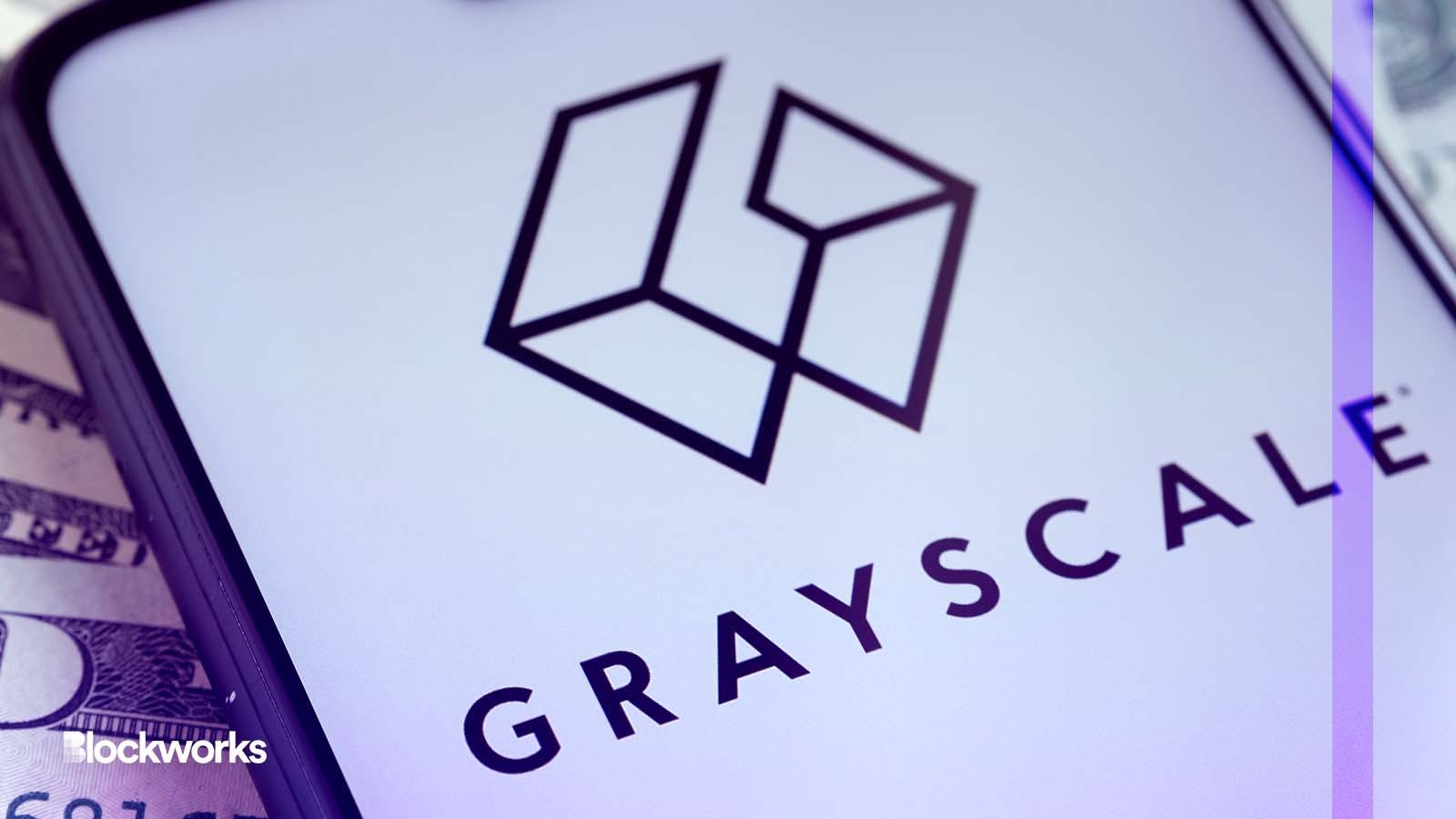Court grants Grayscale’s petition for review in bitcoin ETF case against SEC
The United States Court of Appeals granted Grayscale’s petition for review on Tuesday

Ascannio/Shutterstock modified by Blockworks
A three-judge panel for the DC Circuit Court of Appeals sided with Grayscale Investments in its battle against the Securities and Exchange Commission.
The win by Grayscale on Tuesday comes after the firm sued the SEC in June 2022 — when the US securities regulator blocked the crypto-focused asset manager from converting its Bitcoin Trust (GBTC) to an ETF.
The firm had argued that the SEC’s approval of ETFs investing in bitcoin futures contracts, but not proposed products that would hold bitcoin directly, is “arbitrary and capricious.”
The judgment granted Grayscale’s petition for review and ordered that “the commission’s order be vacated,” according to the filing. This means that the SEC has to review Grayscale’s application, which it had previously rejected.
Grayscale CEO Michael Sonnenshein said in a Tuesday tweet that the company’s legal team is “actively reviewing” the court’s decision.
“This is a monumental step forward for American investors, the bitcoin ecosystem and all those who have been advocating for bitcoin exposure through the added protections of the ETF wrapper,” a Grayscale spokesperson told Blockworks.
The firm “will be pursuing next steps with the SEC” after reviewing the opinion, the representative added.
“We are reviewing the court’s decision to determine next steps,” an SEC spokesperson told Blockworks in an email.
The price of bitcoin rose sharply on the news, rising above $27,000 after beginning the day around $26,100, according to TradingView data.
The court’s decision on Tuesday builds on industry support for the notion that Grayscale would notch a rare win over the SEC.
Grayscale legal strategist Donald Verrilli Jr. said during March oral arguments in the case that there’s a 99.9% correlation between prices in the bitcoin futures market and the spot bitcoin market.
The Tuesday filing echoed that sentiment. The court found that the SEC did not dispute Grayscale’s “evidence that the spot and futures markets for bitcoin are 99.9 percent correlated, nor suggested that market inefficiencies or other factors would undermine the correlation.”
“The Commission’s unexplained discounting of the obvious financial and mathematical relationship between the spot and futures markets falls short of the standard for reasoned decision making,” the filing said.
Emily Parise, an attorney representing the SEC, had said the causal relationship between the bitcoin futures and spot markets “is the key empirical question that we don’t know the answer to.”
DC Court of Appeals Judge Neomi Rao — as part of questioning some said appeared favorable to Grayscale — said during the March hearing that the SEC had not explained why Grayscale was wrong about the relationship between the bitcoin spot and futures markets.
Read more: Grayscale appears to win opening salvo in bitcoin ETF case vs SEC
Bloomberg Intelligence Analyst James Seyffart said that he believed Grayscale had a 70% chance to win.
Despite the ruling, next steps are unclear.
Industry watchers had previously pointed out that if the courts deem the SEC’s denial of GBTC’s conversion insufficient, the regulator could potentially deny it via different reasoning.
Updated August 29, 2023 at 11:37 am ET: Added quote from SEC spokesperson.
Updated August 29, 2023 at 11:00 am ET: Added quotes from Tuesday court ruling.
Get the news in your inbox. Explore Blockworks newsletters:
- The Breakdown: Decoding crypto and the markets. Daily.
- 0xResearch: Alpha in your inbox. Think like an analyst.






